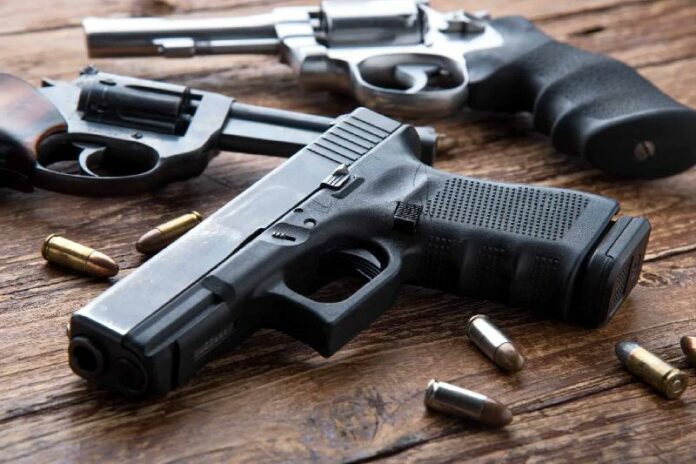On June 1, 2020, Heriberto Carbajal-Flores, a migrant illegally living in the United States, was found in unlawful possession of a firearm in the Little Village neighborhood of Chicago, Illinois. The charge falls under Title 18 of the United States Criminal Code, which makes it illegal for undocumented individuals to possess or purchase any firearm or ammunition.
Two motions were previously made in 2022 by Carbajal-Flores to drop the charges, but both were denied. This month, a third motion for dismissal was granted by Judge Sharon Johnson Coleman of the U.S. District Court for the Northern District of Illinois, who cited Carbajal-Flores’ previously clean criminal record in her decision.
Additionally, Carbajal-Flores had stated to the court that he was in possession of the handgun for “self-defense,” as the city of Chicago and many across the U.S. had seen “civil unrest” following the death of George Floyd on May 25, 2020. Coleman asserted that Carbajal-Flores had a reasonable right to defend himself and his property from potential harm during this time. (RELATED: The Regime Attacks Chauvin Defenders)
When it comes to firearms, the U.S. is unique in enshrining its people’s right to keep and bear arms in law; it’s one of only 10 countries worldwide that have done so. This isn’t just the case for the Second Amendment, though; the United States’s entire Bill of Rights is distinctive in that it never uses the word “citizen,” implying that all who live in the country are entitled to those rights upheld in the first 10 amendments. “Citizen” rarely appears in the Constitution at all, its language falling instead to the use of words like “person,” “people,” or “individual.”
The implication of this has been argued in many cases concerning non-citizens, starting with the 1903 landmark decision Yamataya v. Fisher by the U.S. Supreme Court. The ruling stated that even those who have entered the country unlawfully deserve the same due process as citizens and legal residents. Throughout the years, Yamataya v. Fisher has been posited as a springboard to afford illegal immigrants increased constitutional protections. The Supreme Court’s 1982 ruling in Plyler v. Doe allows children of illegal immigrants access to “free public education,” for example.
Coleman herself cited lower court rulings in her own decision to dismiss the firearms charges against Carbajal-Flores. The issue now stands that her ruling sets another new precedent: Illegal immigrants now have the same right to keep and bear arms as legal residents and citizens do. But should that be the case?
If a citizen or otherwise legal resident of the U.S. were to be found guilty of breaking a law, specific rights he or she had as a law-abiding citizen would be temporarily or permanently revoked. This often includes the right to bear arms, depending on the severity of that person’s crime. Using the same basic logic of criminal prosecution and punishment, illegal aliens are guilty of breaking immigration laws and should, therefore, not be allowed certain rights that their law-abiding counterparts are granted.
Furthermore, Colman’s precedent-setting decision comes as the country has seen a surge of illegal immigration at the southern border. Unlawful border crossings hit record highs in December of 2023, according to the Pew Research Center. Almost 250,000 migrants crossed the border that month alone. Since January 2021, nearly 8 million immigrants have illegally entered the United States.
Those who illegally cross the border come with no vetting, no accessible documented past, and no criminal history. They can say and be whomever they want without a paper trail following them. It is not only unwise but downright dangerous to allow these individuals the legal protection to keep and bear firearms.
A whopping 80 percent of Americans believe the government is “doing a bad job” at protecting the border. The same concern over the number of illegal border crossings should bleed into this issue. It is paramount to take a hard look at what protections illegal aliens are being afforded and how these protections are making the United States a more dangerous place in which to live for its law-abiding residents.
via spectator



